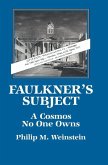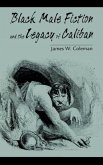This fresh approach to Faulkner's canon examines his fiction in relation to other writers of the South whose works echo but also supplement, revise, respond to, and even correct his depictions of the South. Whether working at the same time or two generations after Faulkner, these writers tackle similar issues--the liberal white male, the southern lady, African-Americans, and the nonaristocrat. From Ellen Glasgow and Zora Neale Hurston to Ernest Gaines, Toni Morrison, and new writers like Elizabeth Dewberry and Tim Gautreaux, many southern writers have used the same tropes, plots, and archetypes as Faulkner, to different effect. Margaret Bauer argues that they seem to have understood more quickly than the critics that Faulkner was only one voice of one part of the South and that there were more stories to tell and more people who could tell them. Using a variety of critical techniques, Bauer offers a new avenue toward understanding the literary response to southern history. Among the most important contributions of this book is its re-examination of Faulkner's white male liberal prototype, who feels powerless to effect change and relieve the oppression of African-Americans and women in the South. Viewing such a character from the point of view of the oppressed illuminates the cowardice of these privileged men, who were previously lauded for their liberal consciousness or sympathized with for their frustration over their impotence. Bauer also offers a thorough reading of the main body of Ernest Gaines's canon.
Hinweis: Dieser Artikel kann nur an eine deutsche Lieferadresse ausgeliefert werden.
Hinweis: Dieser Artikel kann nur an eine deutsche Lieferadresse ausgeliefert werden.








